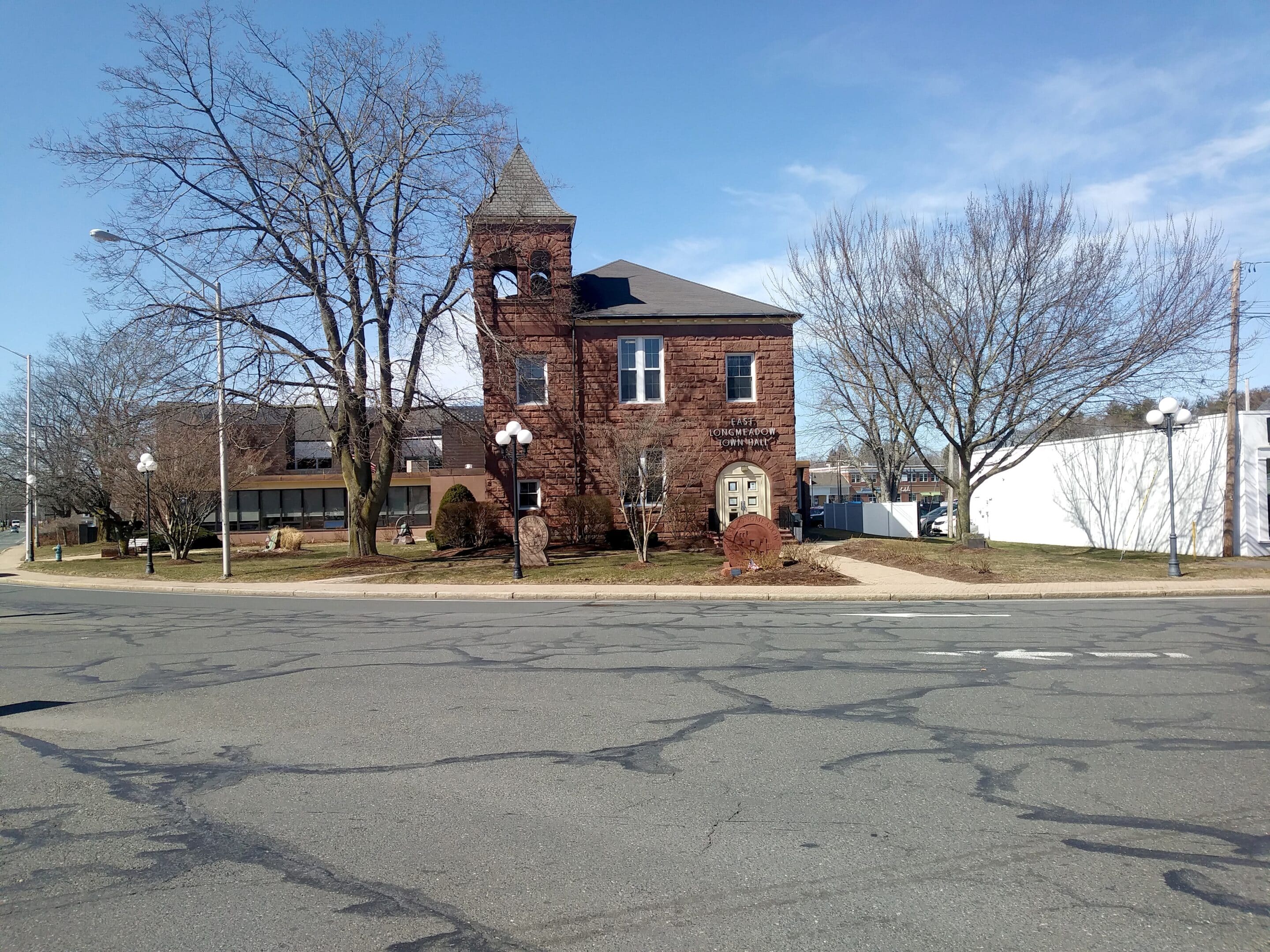EAST LONGMEADOW — After a month of meetings of the Financial Oversight Committee, the East Longmeadow Town Council conducted a public hearing over the proposed fiscal year 2026 budget during its meeting on May 13.
Financial Oversight Committee Chair Jim Broderick began the hearing by stating that the committee recommended Town Manager Tom Christensen’s budget as it was submitted to the committee.
“We felt that the budgets were reasonably constructed, that there was due diligence applied and that the hard work was done by the town manager and the budgeters, and the School Committee and the School Department,” he said. “We thought that it was done well and correctly, especially considering the issues that we face and with the debt and interest coming on board with the new high school, which we’ll be kind of lumping in in FY26.”
Broderick said the committee’s one recommendation was to look into getting an “outside resource” to help the town look into the rising costs of employee benefits, health insurance and retirement contributions.
“It rose almost 10% this year and it is going to squeeze us out. So that’s an area that if there’s some way we can find to help push that down a bit, it would be to the town’s benefit,” Broderick said.
Christensen said that the town was able to reach a “semi-level services budget,” which included significant cuts to the School Department’s initial budget. The schools had initially requested an 8.57% increase over the FY25 budget, but ended up with a 2.5% increase, with a total budget of $36.89 million. This increase resulted in the cuts of 19 positions. For more information about the school budgeting process, head to tinyurl.com/yc6yz6z.
Christensen said that the town went with a “very, very conservative budget” as the tax rate would be increasing because of the payments for the high school as well as the increases to health insurance, property and casualty insurance, and retirement.
“We have this situation that we’re in where we’re dealing with some monumental increases as well as the excluded debt from the high school, which doesn’t necessarily hit us in the operating budget, but hits us where it counts, and that’s the tax rate and how much of an impact that’s going to be on the community,” he said.
One question Councilor Ralph Page brought up was about the actual revenues versus what was being billed for water and sewer rates. Town Accountant Kim Collins explained that the usage estimate was “way too high” and “we weren’t even billing out what we were saying we were going to bring in for revenue.”
She explained that the town was in a revenue deficit every year.
“The good part was that we had plenty of retained earnings and we were underspending our expense budget. So, we weren’t getting this big hit to our retained earnings, we just weren’t bringing in what we were saying we were bringing in,” Collins said.
Collins added that this is a statewide problem and that since she started for the town in FY23, this is an issue she has been working on by reducing the estimates and increasing the rates to close the gap.
“If you look at what we budgeted, versus what we billed, versus what we collected, there were almost $200,000 swings, $100,000 swings. We’ve really closed that up for [FY25], but we still are not collecting what we are actually billing,” she said.
Collins said that FY25 looks much better and the town is continuing to close the gap for the stormwater funds.
“Stormwater’s a little different because there’s so many different fees within it that it’s difficult to estimate it perfectly. So, in order to prevent this happening again in [FY26], we just left the revenue flat and increased all the revenues as a percentage, so it was equal across the board,” she said.
When asked by Page if the town was pursuing people not paying their water, sewer and wastewater bills, Christensen said the town was but those payments would show up in the following fiscal year.
Ultimately the hearing was continued to the council’s next meeting on May 27, when the council will vote on the budget.
The council also voted to amend the zoning bylaw to allow massage therapist businesses in commercial, business, industrial and mixed-use village zoning districts by right without the need for a special permit.
Planning Director Rob Watchilla said that the proposal for the change was to make the process less cumbersome, especially for massage therapists working by themselves, to open a business as individual massage therapists need a license to practice and businesses need a license to operate from the state.
“So, they’re holding two separate licenses in order to conduct their business in town. And the Planning Board felt that it was cumbersome to these applicants moving forward,” he said.
While Councilor Jim Leydon was concerned about being able to prevent illicit activity in these businesses without a special permit process, the council approved the change to the bylaw with a 6-1 vote with Leydon being the one vote against.
During the meeting, the council also voted to adopt the HERO Act, which allows municipalities to increase the property tax exemptions for military veterans meeting certain conditions and adds an annual cost-of-living adjustment. The town set the property tax exemption at 100%. The full list of conditions is available here: tinyurl.com/2urjp3s2.
The council also agreed to move forward potentially putting a question on the 2026 ballot that would ask residents to vote yes or no to allow the sale of recreational cannabis, after a petition from residents Jeffrey and Christina Brooks was not finalized in time to be on the ballot for the June 3 election.


